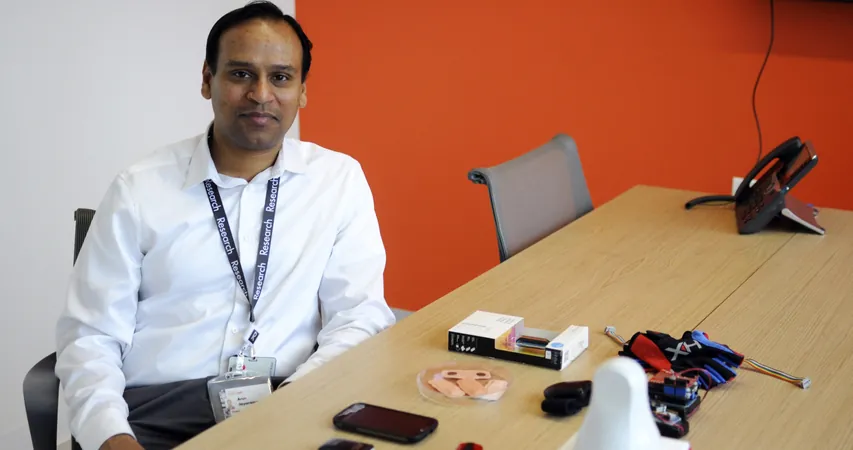
Revolutionizing Pediatric Surgery: How Consumer Wearables Are Predicting Postop Complications
2025-07-09
Author: Mei
A Groundbreaking Study Using Consumer Wearables in Kids
Each year, about 4 million children in the U.S. undergo surgical procedures, exposing them to risks of postoperative complications like infections. Despite the critical need for timely detection, monitoring these complications after discharge has been a major challenge.
However, a pioneering study published in *Science Advances* by teams from Northwestern University, Shirley Ryan AbilityLab, and the University of Alabama at Birmingham has made a significant breakthrough. It’s the first study to leverage common consumer wearables, like Fitbits, to effectively predict complications in pediatric surgeries.
Transforming Wearable Tech into Health Allies
"Consumer wearables are becoming part of our everyday lives, helping us track our activities and wellness,” says Arun Jayaraman, PhD, a lead researcher and professor at Shirley Ryan AbilityLab. "Our work harnesses this technology with a newly trained algorithm that uses innovative metrics, enhancing the ability to detect complications early." This could lead to improved outcomes and redefine pediatric health monitoring.
How They Did It: A Closer Look at the Study
In this groundbreaking study, 103 children who had undergone an appendectomy—a surgery that can result in complications in up to 38% of cases—were outfitted with commercially available Fitbit devices for 21 days post-surgery. Instead of merely relying on standard metrics like heart rate or activity levels, researchers trained the devices to recognize unique patterns in a child’s circadian rhythms and activity.
The findings were remarkable: the refined algorithm allowed scientists to predict postoperative complications with 91% sensitivity and 74% specificity—up to three days before formal medical diagnosis!
Changing the Game in Postoperative Care
Dr. Fizan Abdullah, a crucial contributor to the study, emphasizes the challenges of relying on subjective reports from children and their caregivers, who often struggle to express symptoms clearly. "This innovative approach could transform the landscape of postoperative monitoring, ensuring quicker intervention and improved recovery rates for pediatric patients."
What Lies Ahead: The Future of Surgical Monitoring
This research is part of a broader four-year NIH-funded initiative aiming to take this concept further. The next phase involves creating a real-time system that automatically analyzes patient data and sends alerts to medical teams, potentially revolutionizing how pediatric postoperative care is managed.


 Brasil (PT)
Brasil (PT)
 Canada (EN)
Canada (EN)
 Chile (ES)
Chile (ES)
 Česko (CS)
Česko (CS)
 대한민국 (KO)
대한민국 (KO)
 España (ES)
España (ES)
 France (FR)
France (FR)
 Hong Kong (EN)
Hong Kong (EN)
 Italia (IT)
Italia (IT)
 日本 (JA)
日本 (JA)
 Magyarország (HU)
Magyarország (HU)
 Norge (NO)
Norge (NO)
 Polska (PL)
Polska (PL)
 Schweiz (DE)
Schweiz (DE)
 Singapore (EN)
Singapore (EN)
 Sverige (SV)
Sverige (SV)
 Suomi (FI)
Suomi (FI)
 Türkiye (TR)
Türkiye (TR)
 الإمارات العربية المتحدة (AR)
الإمارات العربية المتحدة (AR)